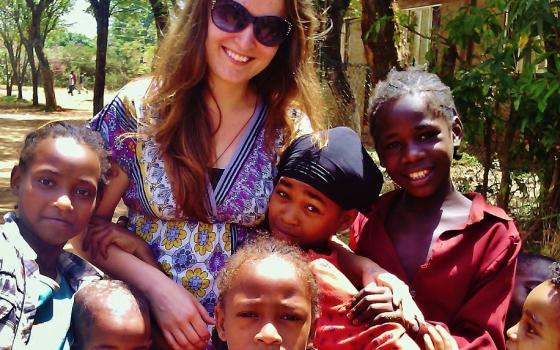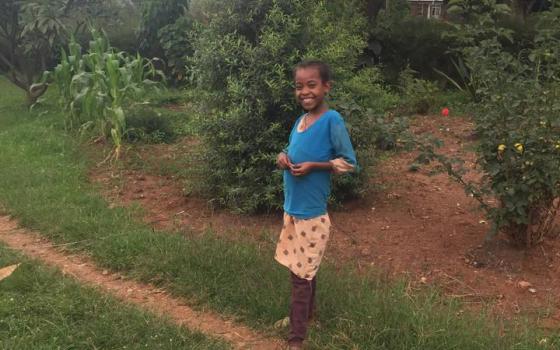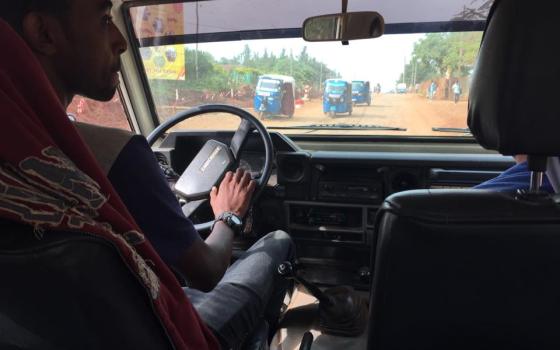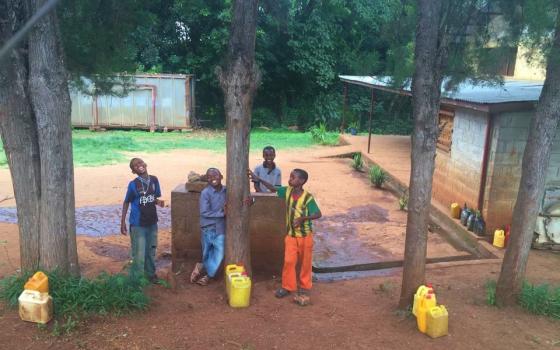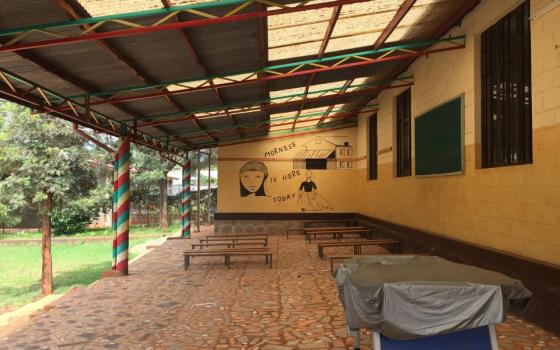Notes from the Field is GSR’s summer blogging project. Working with the Catholic Volunteer Network, we’ve enlisted four young women working in ministries of Catholic sisters around the world – Honduras, Thailand, Ethiopia and the United States – to blog about their experiences, each for six weeks.
_____
Sitting in the shade of a mango tree, I see people go by, busy with their work and tasks. As I sit, people stare at me while they walk, some even stopping before continuing on their way.
When I am outside of the sisters’ compound I get a lot of attention. Grown-ups and children stare alike. Children almost always stop and linger, sometimes for so long I begin to wonder if their parents ever worry about what happened to them and the water they were supposed to fetch. Children’s stares have never bothered me. I always just wave, smile, make funny faces, etc. At first adults’ continuous gazes made me feel uncomfortable, but now I just smile and wave and shout out a greeting in Amharic if I catch them staring too long.
People are very friendly, though. The ones who know a little English always try to talk to foreigners, and I have had quite a few random strangers tell me, “Welcome to Ethiopia!” Also, once when I went to the small shop I frequent, the lady who owns it was eating lunch. When she saw me she smiled and said, “Enibla! Enibla!” which meant she wanted to share her food with me.
Even though I have had many wonderful encounters like this one, I can’t deny the fact that there are also people here who only seem to see money when they see foreigners. It saddens me, but I don’t let those encounters make me suspicious or blind to the good in so many people here.
Sometimes I also encounter sights that touch my heart and make me mad at the same time. For instance, one day when I was in the busy part of town, where all the small shops are, I saw a poor old man who was crippled in both legs, using only his arms to scoot himself across the road on his bottom. It was during a busy part of day, so the road was filled with Bajajes, zooming here and there. That made it difficult even for me to cross the road, but here was a man scooting along the ground. I think what shocked me the most was that none of the vehicles stopped to help; they just swerved around him and kept going. It made me wonder, “How can no one be shocked by this?” and, “How is it that humans become insensitive to events that are a common occurrence?”
Outside of the compound, things like this happen. However, most of my day as a volunteer is spent in the sisters’ compound. I help teach communications in the college here. During my first couple weeks of teaching, the attendance roll call was a challenge for me, as well as a source of amusement for the students, as I struggled with pronouncing names that sounded strange to my ears: Fireheyewot, Wendmagene, Manuhe.
I also struggled with trying to communicate with the students and teachers. At first it would frustrate me when teachers would tell me, “I can’t understand your English” — because they would back up their statement by saying that they could understand past volunteers better. English was a second language for the past volunteers, so I knew I was going to have to change my vocabulary and slow my speaking pace.
Each school day, the teachers and students have a 30-minute tea break. I enjoy going with some of the teachers to drink tea and socialize because I usually get to learn interesting things about Ethiopia. For instance, one day one of the teachers had a lemon, and the lemon reminded her of a tradition here in Ethiopia that happens on Epiphany. Apparently, if a guy throws a lemon at a girl on Epiphany that means he wants to marry her, and if she keeps the lemon that means she accepts his proposal.
As a volunteer, I also teach English on Sundays during the sisters’ oratory. It is a little difficult teaching young children because their knowledge of English is very limited, and my knowledge of Amharic is also limited. I have to heavily rely on pictures and gestures to try to teach. However, I really enjoy playing with the children. They love to give hugs and always have a way of making me feel like a celebrity.
Being a volunteer in Ethiopia has helped me learn to interact with people from different cultures and to be open to adjusting the way I communicate to accommodate people with different levels of English skills. Volunteering isn’t always rewarding. Some days I wonder if my students are actually benefiting from me. However, volunteering is worth it. It helps take money out of the equation, and lets one focus on work, not as a means to survive and make an income, but solely as a way to help and contribute to humankind.
[Angela Mahoney is a VIDES volunteer in Ethiopia. She is there teaching Communications and English, and on Sundays she helps the sisters with the Oratory for children.]
